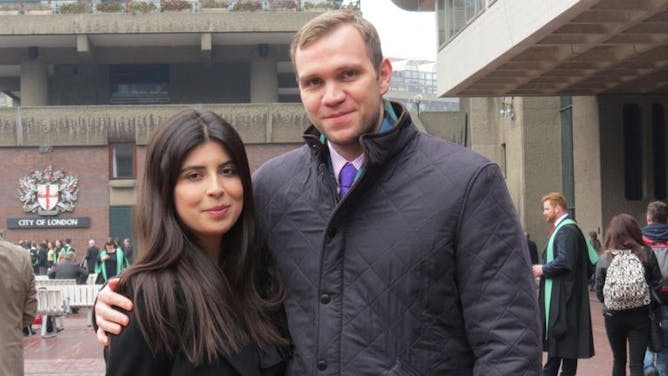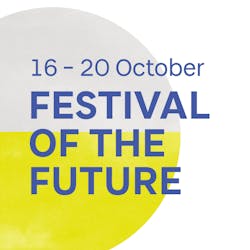|
|
|
Editor's note
|
|
When British academic Matthew Hedges was jailed in the United Arab Emirates last year on spying charges, he joined a long list of scholars from around the world who have been targeted and prosecuted for simply carrying out their research. During his detainment, Hedges was held in solitary confinement, force-fed drugs and battled depression, along with thoughts of self-harm and suicide.
As education editor at The Conversation, I have read of hundreds of similar cases, and while Hedge’s imprisonment prominently featured in the UK media, the wider ramifications for the research community have been largely overlooked.
When I approached Hedges to see if he was interested in writing about his arrest and imprisonment, it also got me thinking about the wider issue of fieldwork research. His story became the catalyst for an international series on academic freedom, free speech and inquiry. As part of this series, Hedges writes about why his time in the UAE shows how bureaucracy-led universities are not equipping their students
and staff with the appropriate skills and competencies needed to undertake their job in today’s world.
Elsewhere on the site, we look at how animals are disappearing from forests – with grave consequences for the fight against climate breakdown – and whether the “Victorian illness” scurvy is really making a comeback in the UK.
|
Holly Squire
Health, Society and Education Editor
|

|
|
|
|

Matthew Hedges with his wife Daniela Tejada.
Matthew Hedges, Durham University
As I found, academics engaging in fieldwork research are in a particularly vulnerable position.
|

A toucan eating a fruit in the tropical wetlands of the Pantanal, Brazil.
Uwe Bergwitz/Shutterstock
Charlie Gardner; Jake Bicknell; Matthew Struebig; Zoe Davies: University of Kent
In the absence of animals to help larger trees reproduce, forests are suffering.
|

Nixx Photography/Shutterstock
Ali Hill, Solent University
Scurvy cases in England have more than doubled in the past ten years. But malnutrition rates have more than tripled.
|
Business + Economy
|
-
Arnab Bhattacharjee, Heriot-Watt University; Mark Schaffer, Heriot-Watt University
Abhijit Banerjee, Esther Duflo and Michael Kremer win the Nobel Prize for Economics 'for their experimental approach to alleviating global poverty'.
-
John Colley, Warwick Business School, University of Warwick
WeWork's uncertain future reflects how investors have wised up to the hype around Silicon Valley start ups.
-
Andres Hervas-Drane, City, University of London; Paolo Aversa, City, University of London
Movie studios are launching their own streaming apps but record labels aren’t about to do the same.
|
|
Politics + Society
|
-
Thomas Gift, UCL
Are Republican leaders overestimating the extent to which the public wants them to defend Donald Trump?
-
Gwendolyn Sasse, University of Oxford
What do the people of the Donbas want for their future?
|
|
Arts + Culture
|
-
Dan Stone, Royal Holloway
The voice of an ordinary 14-year-old Polish girl comes through loud and clear 70 years later.
|
|
Environment + Energy
|
-
Dirk Messner, United Nations University
Innovation in digital technology is accelerating – it has massive untapped potential for tackling the climate crisis.
|
|
Science + Technology
|
-
Marcus Tomalin, University of Cambridge; Stefanie Ullmann, University of Cambridge
Artificial Intelligence can perpetuate existing social imbalances in a harmful manner. Can this undesirable scenario be avoided?
|
|
Health + Medicine
|
-
Catherine Mwangi, Jomo Kenyatta University of Agriculture and Technology; John Gachohi, Washington State University
Most Kenyan women were introduced into drug use by male sexual partners in their teenage years.
-
De Wet Swanepoel, University of Pretoria
mHealth supported service-delivery systems can provide increased access to hearing and vision services for preschool children in poor communities.
|
|
| |
| |
| |
| |

|
| |
| |
| |
Featured events
|

|
Bonar Hall University of Dundee, Dundee, Dundee City, DD1 4HN, United Kingdom of Great Britain and Northern Ireland — The Conversation
|

|
Bonar Hall University of Dundee, Dundee, Dundee City, DD1 4HN, United Kingdom of Great Britain and Northern Ireland — The Conversation
|

|
East Road, Cambridge, Cambridgeshire, CB11PT, United Kingdom of Great Britain and Northern Ireland — Anglia Ruskin University
|

|
East Road, Cambridge, Cambridgeshire, CB11PT, United Kingdom of Great Britain and Northern Ireland — Anglia Ruskin University
|
|
|
|
| |
| |
| |
| |
| |
|
|
|
|
|
|
|